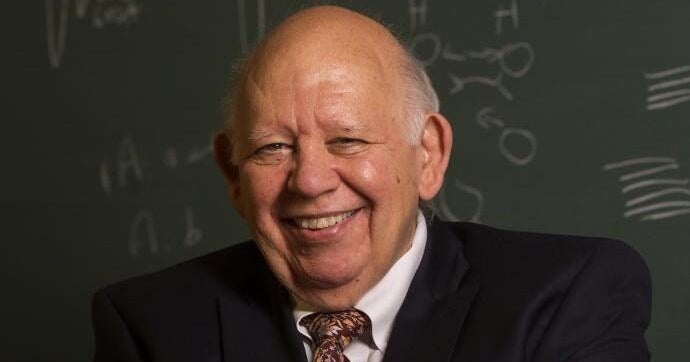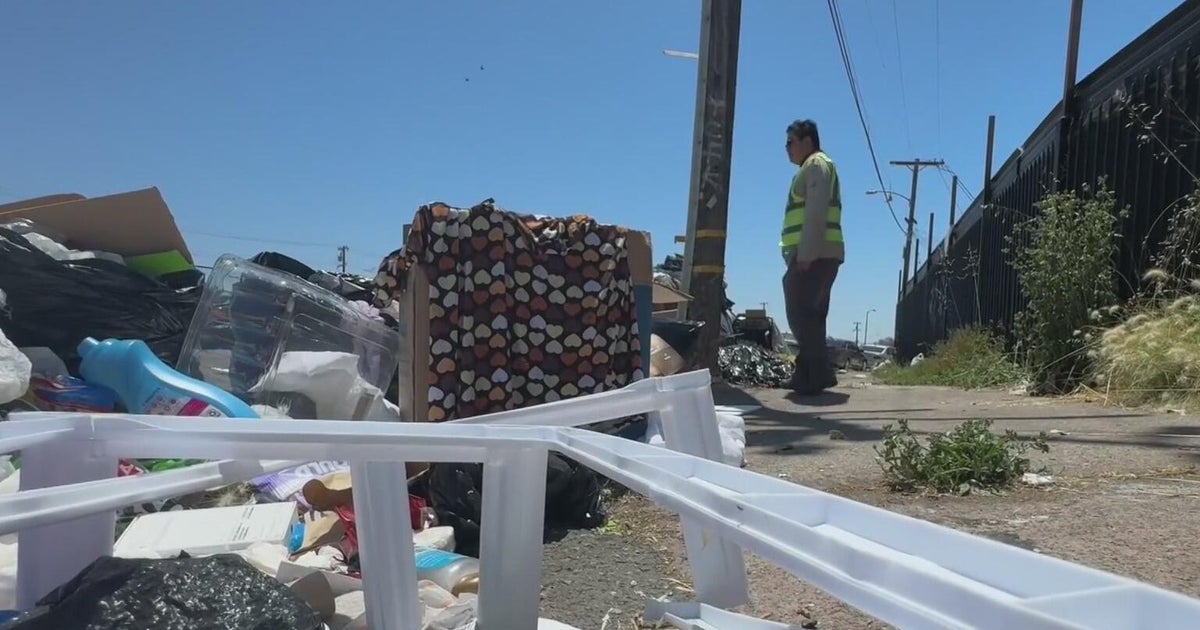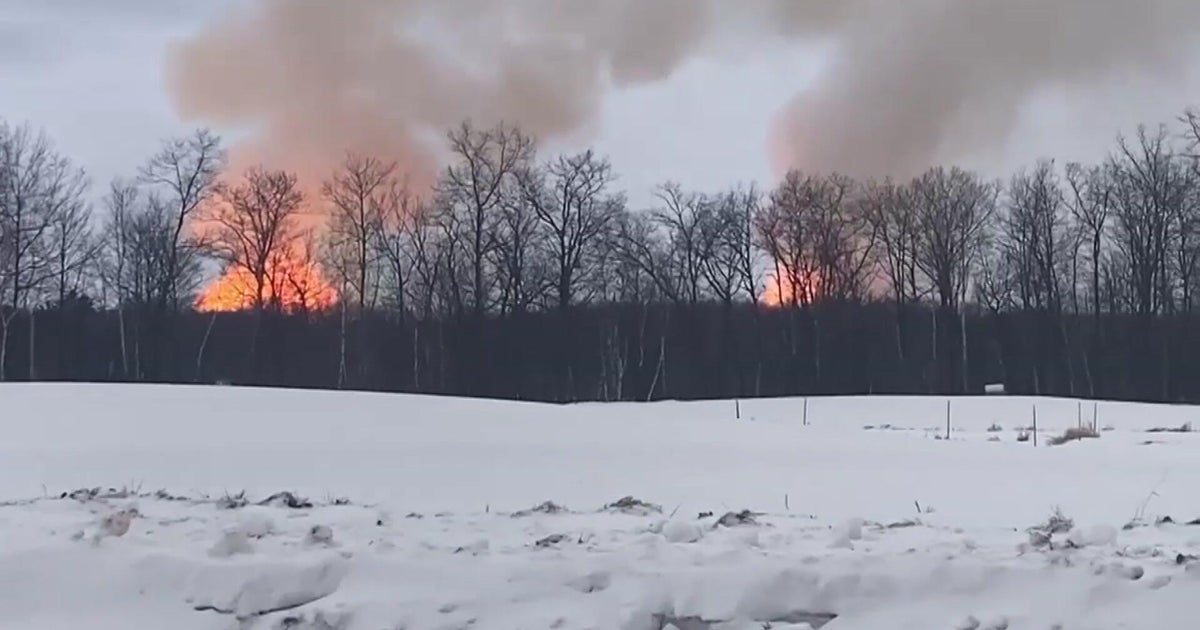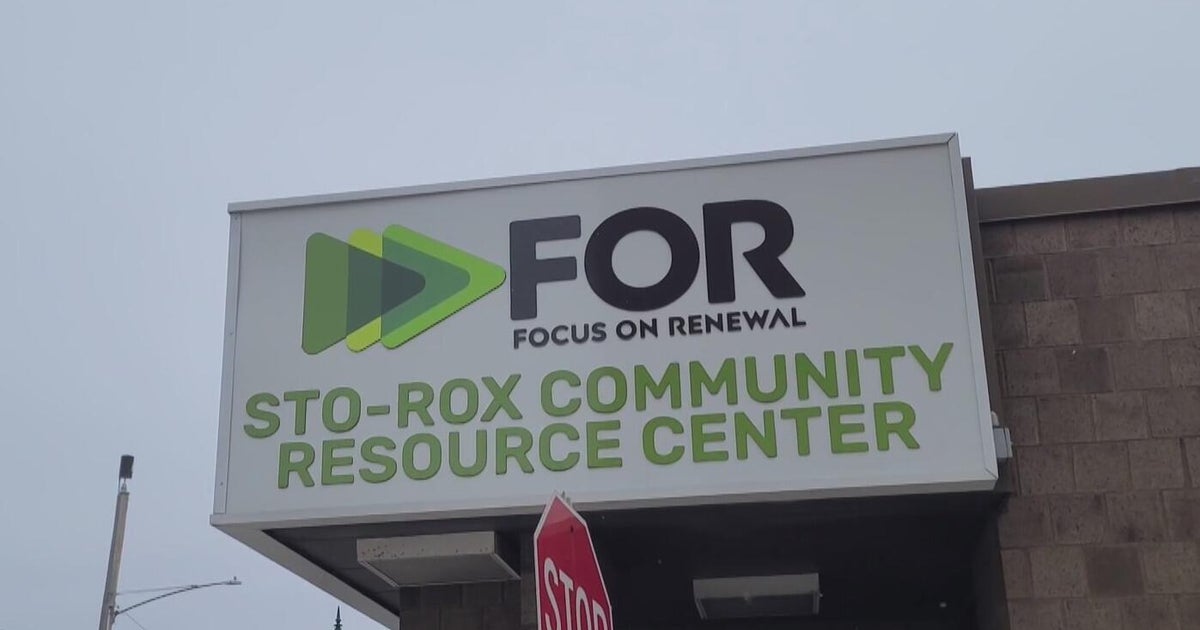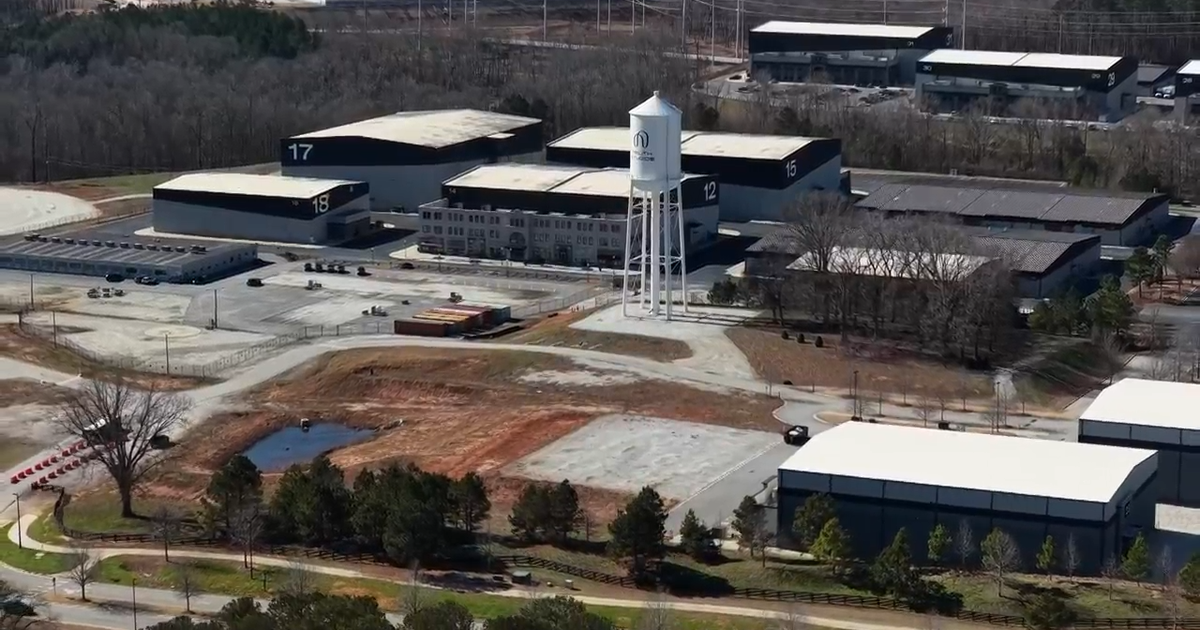Arvada Man, Energy Pioneer, Is Fighting For The Promise Of A Net-Zero Neighborhood
(CNN) - Dar-Lon Chang once held out hope that the fossil fuel industry would pivot to clean energy.
As a former engineer at an oil company in Houston, Chang said he conducted research on natural gas -- then considered a "bridge fuel" to transition to renewables -- and found cleaner ways to extract and use fossil fuels. Chang worked there for more than 15 years but said not only was his research on cleaner extraction not used, his concerns about the climate crisis were dismissed.
"So all these things got me thinking of leaving," Chang told CNN. "But more than that, I wanted to leave Houston because my daughter was born just a couple months before Hurricane Ike in 2008."
Living in Texas, Chang and his family experienced their share of climate disasters. Years after Hurricane Ike leveled Southeast Texas, Hurricane Harvey in 2017 flooded the area with more than 19 trillion gallons of water -- something scientists said was three times more likely to occur because of climate change.
In 2015, Chang and his wife started searching for a new place to put down roots. They found what they were looking for at the Geos Neighborhood in Arvada, Colorado -- a net-zero community where the homes produce enough energy for the year with renewables. Each home has a solar array and a herd of goats to keep the grass and weeds at bay.
"We were shocked and amazed that the technologies were already available to build a house where you don't have to have natural gas," Chang said. "You can generate as much electricity as you use, and to have a whole community built on this? We were really impressed."
Chang and his family moved to Geos in 2019. It was the antithesis of what he knew back in Houston, and he said it was proof that an all-electric, net-zero future is possible. There, he and his neighbors were in complete control of their eco-community.
To them, it was idyllic.
But in 2020, a new developer took over and upended the community when it announced natural gas lines would be installed in the newest homes, shattering the promise of Geos and the dreams of the former developer and the neighborhood's residents.
A battle over natural gas
The original developer, Norbert Klebl, said he began designing the Geos community 15 years ago. The Austria-born engineer said he wanted to prove that net-zero homes are possible with technology that already exists.
"In Austria, I experienced how people can actually live sustainably and happily in a much better environment than our standard American suburbs," Klebl told CNN. "And I wanted to create this kind of village environment because I'm of the opinion that sustainability starts with community."
Klebl and his team of architects strategically crafted every inch of Geos and its first 28 homes.
Because sunshine means warmth and energy, homes were laid out in a checkerboard-like pattern so one doesn't cast a shadow over the other. Along with solar panels on each roof, Klebl included energy-efficient washers and dryers, triple-paned windows for insulation, LED lights and double garages with charging stations for electric vehicles.
Some houses use geothermal heat pumps, which harness energy from the earth to heat their homes during the winter.
There's a herd of goats that roam a section of the neighborhood -- natural lawn mowers.
But Klebl said he had to sell the neighborhood's remaining, undeveloped land to Peak Development Group in November 2020 to settle a divorce. At first, Peak Development promised the next phase of homes would reflect Klebl's original climate-friendly, sustainable design.
Chad Ellington, the lead of Peak Development Group, said in a news release at the time that the company plans "to build upon the project's sustainability-driven vision," vowing to "complete the public infrastructure and partner with the local homebuilding community to develop 215 additional net-zero homes over the next two years."
Klebl told CNN he trusted Ellington and was "fully confident" Peak Development would carry on the sustainable torch.
But last spring the company took a different turn. Dream Finders, the builder Peak Development is working with, and the city of Arvada moved forward with installing natural gas lines to build the next phase of homes.
Despite demonstrating that the small net-zero neighborhood of Geos can thrive without fossil fuels, particularly natural gas, Ellington dismissed pleas from residents to keep gas out of the new builds. He said the decision was ultimately made by Dream Finders, which will follow "all requirements of the Geos Neighborhood design guidelines," rather than its goals.
"The very passionate existing residents (of Geos) are a bit misinformed and were apparently misled by the prior developer about what are 'requirements' vs 'goals,'" Ellington told CNN in an email in May. "The prior developer only was able to build out a portion of one of the ten blocks within Geos over a 10 to 15-year period and ultimately failed on executing his vision for Geos."
Ellington declined to do an interview over the phone or on camera.
Brianna Titone, a Democrat who represents the neighborhood in the Colorado House of Representatives, also considered buying a home in Geos but found they were all sold out. As someone who has a master's degree in geochemistry and has done environmental consulting, Titone said she understands the severity of the climate crisis and has been an advocate for the neighborhood's net-zero model.
"Legally, (Geos residents) don't have any recourse to say that this developer has to build these homes in a way that they built the original homes; the builder can do whatever they want," Titone told CNN. "What I told them is that what we really need to do is bring this to the attention of people in other neighborhoods in Colorado and around the country that there's a community that has a plan that actually works."
In June, Titone was among a dozen members of the Colorado state legislature who wrote a letter to Ellington showing support for Arvada's Geos community. In the letter, shared with CNN, the lawmakers noted that the company's development plan "interrupts significant progress toward reducing climate impact in Arvada."
The lawmakers asked Ellington to reconsider the plan to install natural gas lines and take advantage of the "opportunity to place more net-zero homes in the market to compete." The legislators also noted that bringing in fossil fuels will only cause division.
For Titone, the original net-zero plan for Geos is a "goose that lays golden eggs."
"But the developer just sees it as another project where they can just build the homes, sell and move on to the next one," she said. "They could be a leader in producing homes that are energy-efficient or cutting edge, create the demand within their own company, and brag about the fact that they built homes like this, but instead they're killing the goose, and they're not reaping the benefits of the of the golden egg."
Chang and Klebl shared with CNN several emails they sent to the Arvada City Council as well as other state and national representatives, pleading for them to help block the natural gas hookups. They told the council that it could be a leader on the climate crisis if it would only stick to the neighborhood's original plan.
In July, Mark Deven, the Arvada city manager, responded to Geos residents in a lengthy email, pushing back on some claims and saying that it "does not have the authority" to rule on the developer's decision to install gas lines.
"While I again appreciate your position, I respectfully disagree," Deven responded to their email. "I would offer that your suggestion for the City of Arvada to take the lead and work with the state of Colorado and Xcel Energy (the state's utility) in order to decarbonize the homebuilding sector should, in fact, be led by the state of Colorado."
In an email to CNN, Deven said that while the city of Arvada does not encourage the use of natural gas in development projects, choosing the source of energy to power homes is "a choice made by the developers and builders associated with these projects," not the city.
"We appreciate the position of the advocates for the energy-efficient and decarbonized features of the original Geos development," Deven told CNN. "Unfortunately, the advocates are asking the city to regulate the use of certain utilities over other utilities when we have no authority to regulate such a choice. This level of regulation must be driven by the state and/or federal government."
In separate emails to Geos residents, which have been shared with CNN, representatives from the city and the developer have argued that the neighborhood's original plan is "not economically-feasible" and that most homebuilders prefer "developments that have gas service."
"I was very disappointed because I thought I had been able to put the neighborhood on the map on the larger scale," Klebl said. "I obviously felt badly because if I had known that, I would not have sold the land to him."
Klebl said he still gets inquiries today from people who wish to buy Geos homes due to their clean energy features. Titone said when she goes around her district, constituents have expressed concerns about the climate and environment.
"Nobody knew they wanted a Tesla before Elon Musk started making a Tesla," Titone said, "They built it from the ground up, and they showed there was demand for it. So the homes in this community is like a Tesla. People don't know that they want it until it's there and available."
'No one likes a gassy neighbor'
Chang stood outside his Arvada home in early October holding a sign that said, "No one likes a gassy neighbor." Next to him, a neighbor's sign read, "Sun is free; gas makes us all pay." They were protesting the installation of natural gas lines that week, Chang told CNN.
By early November, lines had been installed to supply natural gas to 91 new homes, which have yet to be built.
"This story of my neighborhood being a failed experiment in building without gas pipelines is not only false, but it also endangers the transition away from methane gas needed this decade to prevent runaway climate change," Chang said at a city council meeting the following week.
Scientists concluded in August that rapidly reducing methane emissions -- the main component of natural gas -- is critical to tackle the climate crisis. Methane is a greenhouse gas 80 times more potent than carbon dioxide in the near term, but is widely used to fuel stoves and heat homes across the US.
The two main ways methane enters the atmosphere are from agriculture and production efforts in the oil and gas industry. But it can also leak from household connections.
A growing number of cities have already banned natural gas hookups in new homes as part of their climate goals, while some states like oil and gas-friendly Texas and Louisiana are outlawing such bans. California is so far leading the way, with Berkeley as the first city to ban gas installations as other places followed suit. Other major cities including Seattle and New York City are also looking into banning natural gas hookups as well.
"We're not asking for a ban on natural gas," Chang told CNN. "We're just asking that for this specific neighborhood of 200 more homes that are supposed to be built, for it to be held to account to what the first part of the neighborhood did."
Two Arvada city council members elected in November are Geos supporters, Chang said, and residents are hopeful that could shift the tide in their favor. And while Klebl may no longer have full control of the neighborhood he founded, he said whenever he gets inquiries, he directs the prospective residents to talk to the developer and express their interest in clean energy homes as part of their advocacy.
Some, Klebl said, are even willing to pay more for the original clean energy design.
Residents are uncertain of what's to come. And while Chang feels it's as if he is reliving a similar challenge of facing the fossil fuel industry once again, he says living in Geos "is like a dream."
But as the climate crisis becomes more urgent, he said he is determined to push for a fully decarbonized grid to pave a better future for his daughter.
"The installation of gas pipelines at Geos feels like the ghosts of my past fossil-fueled life invading my neighborhood," he said. "But I'm determined to do all that I can to stand up to the industry ... and be a leader in showing that it's possible to live without fossil fuels and to make this transition."
By Rachel Ramirez
The-CNN-Wire
™ & © 2021 Cable News Network, Inc., a WarnerMedia Company. All rights reserved.
